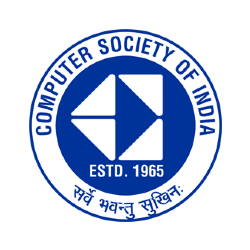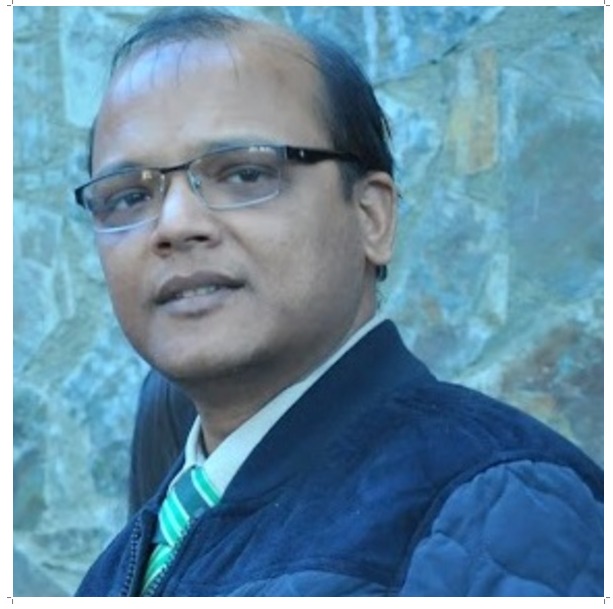Dr. Ashish K. Luhach, PNG University of Technology, Papua New Guinea
Vijender Solanki, CMRIT,Hyderabad, India
Pratiksha Saxena, Gautam Buddha University, Greater Noida, India
Prabhat Thakur, University of Johannesburg, South Africa
Bunseng Chan, Southern University College, Malaysia
Sanjeevikumar Padmanaban, Aalborg University, Denmark
Deepak Gupta, Wichita State University, USA
Ramesh Chandra, Norwegian University of Science and Technology, Norway
Shiva Prakash, M. M. M. University of Technology, India
Ramjee Prasad, Aalborg University, Denmark
Prof. Deepak Prashar, Lovely Professional University, India
Mohd Wajid, Aligarh Muslim University, India
Akash Saxena, Swami Keshvanand Institute of Technology, Management, India
S. P. Ghrera, Alakh Prakash Goyal Shimla University, India
Deepak Dahiya, Majmaah University, Saudi Arabia
IR. Dr. Ismail, Musirin Universiti Teknologi MARA, Shah Alam, Selangor Malaysia
Meenakshi Arya, SRM University, Chennai, India
Prof. A. Govardhan, Jawaharlal Nehru Technological University, Hyderabad, India
Deepa Garg, Bennett University, India
Dr. Rahul Malik, Galgotia University, India
D.Vasumathi, Jawaharlal Nehru Technological University, Hyderabad, India
Dr. Shajulin Benedict, IIIT Kottayam, India
Kamakshi Prasad, Jawaharlal Nehru Technological University, Hyderabad, India
Ashok chandra, Goa Institute of Management, India
Deepak Gupta, SVKM's NMIMS University, India
Shiva Prakash, JNU, New Delhi, India
Shirmohammad Tavangari, University of British Columbia, Canada
Karim Hashim Al-Saedi, Mustansiriyah University, Iraq - Baghdad
Seng Hansun, Universitas Multimedia Nusantara, Indonesia
Felix J. Garcia Clemente, University of Murcia, Spain
Sotiris Kotsiantis, University of Patras, Greece
Prof. Radu Prodan, University of Klagenfurt, Austria
Durgesh Nandan, Symbiosis Institute of Technology, India
Eaglekumar G. Tarpara, Brookhaven National Laboratory, USA
Sanjeev Patel, National Institute of Technology Rourkela, India
Zahra Pezeshki, Shahrood University of Technology, Iran
Nadheer A.Shalash, Al-Mamon University College, Iraq
Prof. Deepali Virmani, Vivekanand Institute of Professional Studies, New Delhi, India
Walid Barhoumi, SIIVA - RIADI Laboratory, Tunisia
Kamarulafizam Ismail, Universiti Teknologi Malaysia, Malaysia
Kreangkri Ratchagit, King's Mongkut University of Technology Thonburi, Thailand
Dr. Ramkumar Jaganathan, Dr NGP Arts and Science College, India
Alok Joshi, Jaypee Institute of Information Technology (JIIT), India
Imran Memon, ZHEJIANG, China
Ette Hari Krishna, Kakatiya University, India
Zafar Iqbal, Shahjalal University of Science and Technology, Bangladesh
Dr. Rohit Thanki, Prognica Labs, Dubai, United Arab Emirates
Preetam Bhardwaj, VIT University,Vellore, India
Anisur Rahman, Jamia Millia Islamia A Central University, New Delhi, India
Pronaya Bhattacharya, Nirma University,Gujarath, India
Mohit Kumar, Cambridge Institute of Technology, Ranchi, India
Ali Akbar, University of Rajshahi, Bangladesh, Bangladesh
Haci Mehmet Baskonus, Harran University, Turkey
Prof. Xiao Zhi Gao, Aalto University, Finland
Prof Dac Nhuong, Haiphong University, Vietnam, Vietnam
Mitsunori Makino, Chuo University, Japan
Siva Somayaji, VIT University, India
Dr. Sahil Verma, Chandigarh Group of Colleges, Jhanjheri, India
Govind Suryawanshi, University of Pune Pune, India
Inayathulla Mohammed, Malla Reddy Engineering College Autonomous, India
Steven Fernandes, Creighton University, Omaha, Nebraska
Noraziah Ahmad, University Malaysia Pahang, Malaysia
Shruti Goel, Maharaja Surajmal Institute of Technology, India
Dimitrios Xanthidis, Higher Colleges of Technology, UAE
Dr. Kavita, Chandigarh Group of Colleges, Jhanjheri, India
Mohammed Hassan Ibrahim, Fayoum University, Egypt
Juan Jose Flores Romero, University of Michoacan, Mexico
Kledi Xhaxhiu, University of Tirana, Albania
G Siva Nageswara Rao, KL University, India
Dr. Chandra Prakash, National Institute of Technology, Surat, India
Vinodani Katiyar, Dr. Shakuntala Misra National Rehabilitation University, India
Dr. Disha Handa, UIC, Chandigarh University, India
Dr. Surjeet Dalal, Amity University, Haryana, India
Prof. P .K Banerjee, R&D Division, Tata Steel, Jamshedpur, India
Shantakumar B Patil, Nagarjuna College of Engineering & Technology, India
Muhammed Kuliya, The Federal Polytechnic Bauchi, Nigeria
Syed Umar, Wollega University, Ethiopia
Pranab Kumar Banerjee, Jadavpur University, India
Shalini Bhartiya, Guru Gobind Singh Indraprastha University, India
Swati Chowdhuri, Institute of Engineering and Management, India
Taranath N L, Adichunchanagiri Institute of Technology, India
Tushar B. Kute, MITU Skillologies, India
Lalita Chaudhary, ITS Engineering College, India
Abdalhossein Rezai, University of Science and Culture, Iran
Alexandre Carlos Brandão Ramos, Federal University of Itajubá & Ecole Nationale de l'Aviation
Civile, Brazil
Davide Moroni, ISTI-CNR-Signals and Images Lab, Italy
Muhammad Wahab, Louisiana State University, USA
Americo Scotti, HögskolanVäst, Sweeden, Brazil
Ashutosh Sharma, Southern Federal University, Russia
Prof Jacinta A. Opara, Kampala International University, Kampala-Uganda, Uganda
Dineswary Nadarajan, University of Malaya, Malaysia
Mohd Hafizal Ismail, Universiti Putra Malaysia, Malaysia
Abhishek Shukla, R.D. Engineering College Technical Campus, India
Mohd Ashraf Bin Ahmad, Universiti Malaysia Pahang, Malaysia
ATM Golam Bari, University of South Florida, USA
Kit Qichun Zhang, University of Bradford, UK
Prof Dr Austin N. Nosike, University of Lay Adventists of Kigali, Rwanda
Rahul Sharma, Tallinn University of Technology, Estonia, Europe
Iztok Fister jr., University of Maribor, Slovenia












